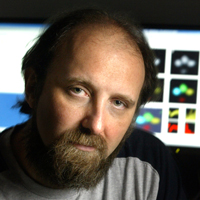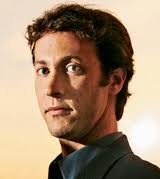Update on Consciousness Research with Christof Koch (BSP 84)
/Christof Koch, PhD
he scientific study of consciousness was once viewed with skepticism, but this has changed dramatically in recent years. According to pioneering neuroscientist, Christof Koch, "the great thing is we’re not condemned to just sort of philosophical speculation, but we can make some predictions, and then go out and measure them. And those are the things I talk about in this book, Confessions of a Romantic Reductionist." In Brain Science Podcast #84, Koch reflects on the progress that has been made since I interviewed him back in 2007 (BSP 22), and he also talks about the latest initiatives at the Allen Institute for Brain Research, where he as recently become the chief science officer.
How to get this episode:
Buy Audio (mp3) for $1.
Premium Subscribers now have unlimited access to all old episodes and transcripts.
New episodes of the Brain Science Podcast are always FREE. All episodes posted after January 1, 2013, are free. See the individual show notes for links the audio files.
Listen in your Favorite Audio app: Audible, Amazon music, Pandora, Spotify, YouTube and many more.
References:
Consciousness: Confessions of a Romantic Reductionist, by Christof Koch.
The Quest for Consciousness: A Neurobiological Approach, by Christof Koch.
BSP 22: Interview with Christof Koch.
BSP 61: Interview with Allan Jones of the Allen Institute for Brain Research.
Who's in Charge?: Free Will and the Science of the Brain, by Michael S. Gazzaniga.
BSP 82: Discussion of Who's in Charge?
Incomplete Nature: How Mind Emerged from Matter, by Terrence W. Deacon.
Tononi, G. An Information Integration Theory of Consciousness. BMC Neuroscience 2004, 5:42.
Announcements:
Complete the Brain Science Podcast Audience Survey for a chance to win a free book.
Next month's podcast will be an interview with Sebastian Seung, author of Connectome: How the Brain's Wiring Makes Us Who We Are.
The Brain Science Podcast is supported by listener Donations.
Post comments on the BSP Facebook Fan Page, in our Goodreads Discussion Group, or the BSP Google+ page.
Sign up for the BSP Newsletter to receive episode announcements and show notes automatically.
I would love to hear from you. You can send me email at brainsciencepodcast@gmail.com.






















